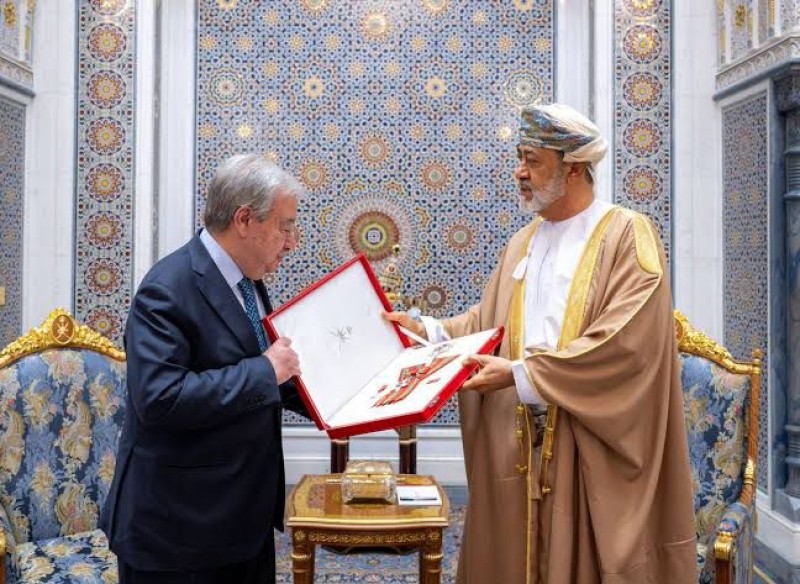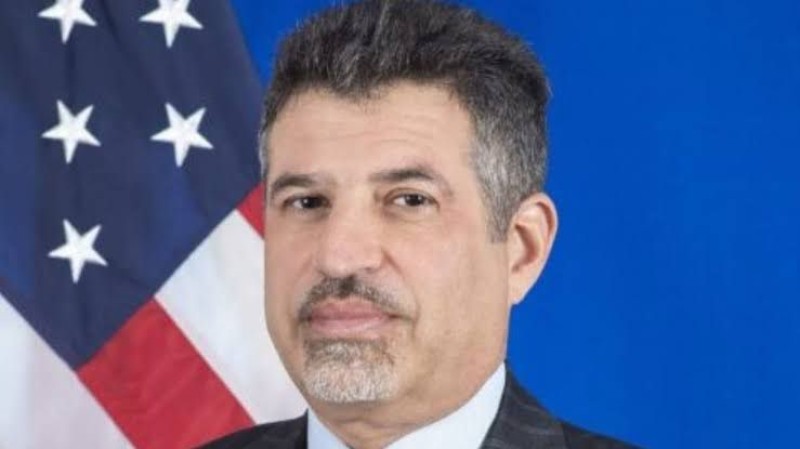Houthi rebels lower their profiles after attacks on Hezbollah and Hamas leaders, says US envoy


Leaders of the Houthi rebels in Yemen have lowered their profiles, fearing they might be targeted like their allies in Hezbollah and Hamas, the US special envoy Tim Lenderking said.
The losses suffered by the Iranian-backed groups in Lebanon and Syria are mounting pressure on the rebels who control the Yemeni capital and large parts of the nation but it hasn’t forced them to change course yet, he said.
The Houthis vowed to continue attacking Israeli-bound ships in the Red Sea as long as Israel’s war in Gaza continues. The conflict, which began in October last year after Hamas attacked Israel, has killed more than 45,800 Palestinians.
“Houthi leaders have lowered their profiles, at least physically. There's a fear of being targeted like other leaders in the region,” Mr Lenderking said at the annual Doha Forum conference.
“I think that that's a reflection of the reality that's going on in the region, but it hasn't tempered their ability and their willingness and their determination to fire at ships,” he said.
The US official was referencing the killing of Hezbollah leaders in Lebanon and Hamas officials in Gaza and the occupied West Bank. Such strikes have increased pressure on Iran-backed groups in the Middle East and forced Hezbollah to de-link its attacks on Israel from a ceasefire in Gaza.
But despite these developments, Mr Lenderking said that regional issues haven’t changed Houthi action.
“Since Hezbollah's decline and Hamas’ decline, the Houthis have kept right up, kept a steady drum beat, of reckless, indiscriminate attacks. But they would do well to pay heed to what’s happening in the region when it comes to their own security and position,” said Mr Lenderking.
“Look what’s happening to their comrades in Hezbollah, Hamas, Syria. Most Yemenis don’t really like the Houthis. Pressure is building on the Houthis to change course.”
The fall of the regime in Syria came as a shock to those who believed that the pro-Iranian administration in Damascus would serve as a pressure front against neighbouring Israel. Iranian militias in the country collapsed as the army failed to fight and Hezbollah retreated.
Mr Lenderking described the events in Syria as a “historic opportunity” for the country's people but also a moment of risk and uncertainty.
“We're all thinking about what it means for the region, for Yemen. My visit also reflects growing frustration with the strong refusal of the Houthis to really put out any sort of signals that they're interested in de-escalation.”
Much like Hezbollah in Lebanon and other armed groups in Iraq, the Houthis are part of the so-called Axis of Resistance, an anti-Israel political and military coalition in the Middle East led by Tehran. Since the war in Gaza started, the alliance has operated through a daily co-ordination process.
The rebels form a heavily armed militia that controls Yemen's capital Sanaa and other regions in the north and west. It has strengthened its fighting capabilities since the civil war started in the country in 2014, posing a serious threat to its neighbours and maritime shipping lanes.
Most of the group's weapons had been based on Iranian designs or entirely Iranian in origin, renamed in Houthi service. However, the rebels have reportedly become self-sufficient in developing their armoury and no longer require significant help from Tehran.
The US, Britain and Israel have launched air strikes against Houthi sites in recent months, but the hits haven’t hampered their ability to launch attacks in the Red Sea and against Israeli strikes.
“Obviously they've been able to restock and resupply and so smuggling networks are a huge challenge. We’re working with partners to identify, and to block as many of the loopholes as we can that are used to transfer or smuggle weapons,” said Mr Lenderking.
He stressed that the difference between the Houthis and the other groups “is that they are less beholden to Iran than Hezbollah or Hamas. They've shown more degree of autonomy to do their own thing, to resist Iranian orders or recommendations”.
“Just as strongly as people in the region feel towards Gaza, in terms of Yemen, regional governments are all in favour of the Houthis ending these attacks immediately. So I do think regional pressure is important, whether we could get the Iranians to align behind that, that's a good thing, but so far they've continued to aid and support Red Sea attacks.”
Mediators conveyed messages to the Houthi rebels in Yemen, inquiring indirectly about what could be offered to stop the attacks in the Red Sea, Yemeni sources told The National.
“They would like us to demilitarise, to move our ships out of the Red Sea. They would like us to undo the previous terrorism designation. They would like us to increase aid inside Yemen. They have very specific things they want from us and the international community,” said Mr Lenderking.

Muscat – The Office of the UN Special Envoy to Yemen said Monday that UN Secretary-General António Guterres discussed the overall situ…

Riyadh — U.S. Ambassador to Yemen, Steven Fagin, on Monday underscored Washington’s commitment to the unity of the Presidential Leaders…

Abyan — The Southern Transitional Council (STC) in Yemen announced on Monday the launch of wide-scale military operations in Abyan province,…